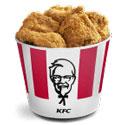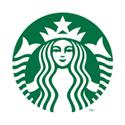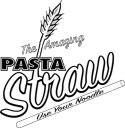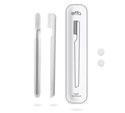CORPORATE ACTION: Aldi
Aldi To Replace Polystyrene Pizza Discs With Recyclable Discs

The Aldi supermarket chain in the UK is introducing 100 percent recyclable pizza discs to replace the Polystyrene discs. Earlier this year, Aldi in the US said it would roll out How2Recycle labels across its own brand products over the next two years, and in March the company committed to using 100 percent recyclable, reusable or compostable packaging for own-label products by 2022. In the UK, it has also stopped offering customers 5p plastic bags, only 9p reusable bags made from plastic waste.[Image Credit: © Lutz Peter from Pixabay]
CORPORATE ACTION: Coca-Cola
Coca-Cola Brazil Expand Commitment To Returnable Bottles
 Coca-Cola Brazil hopes to increase the use of returnable bottles from 20 percent to 40 percent over the next two years, and has invested another $26 million to roll out universal formats with detachable labels to improve recyclability, reduce waste, and improve carbon footprint. The company launched the returnable bottle initiative in 2008 with several brands, including Coca-Cola, Grape Fanta, Sprite, and Guarana Jesus, among others. Consumers can return empty bottles to stores and receive newly filled bottles at a reduced rate. The returned bottles can be re-used 25 before final recycling. The program was launched in São Paulo and the Northeast of Brazil, and will be expanded to Rio de Janeiro and eventually Chile, Argentina, Uruguay, Colombia and Mexico.[Image Credit: © Coca-Cola]
Coca-Cola Brazil hopes to increase the use of returnable bottles from 20 percent to 40 percent over the next two years, and has invested another $26 million to roll out universal formats with detachable labels to improve recyclability, reduce waste, and improve carbon footprint. The company launched the returnable bottle initiative in 2008 with several brands, including Coca-Cola, Grape Fanta, Sprite, and Guarana Jesus, among others. Consumers can return empty bottles to stores and receive newly filled bottles at a reduced rate. The returned bottles can be re-used 25 before final recycling. The program was launched in São Paulo and the Northeast of Brazil, and will be expanded to Rio de Janeiro and eventually Chile, Argentina, Uruguay, Colombia and Mexico.[Image Credit: © Coca-Cola]
Ioniqa’s Process For Hard-To-Recycle PET Materials Is Gaining Attention From Large CPGs
 Coca-Cola is supporting Dutch firm Ioniqa Technologies with a loan, to help it develop the technology for producing recycled PET content from PET waste that is typically difficult to recycle. The move is a part of Coca-Cola’s target of using packaging containing 50 percent or more recycled content by 2030. The technology allows recycling of colored PET bottles, typically excluded from some recycling processes, to be used in food-grade PET. Unilever announced earlier this year its collaboration with Ioniqa.[Image Credit: © Ioniqa Technologies]
Coca-Cola is supporting Dutch firm Ioniqa Technologies with a loan, to help it develop the technology for producing recycled PET content from PET waste that is typically difficult to recycle. The move is a part of Coca-Cola’s target of using packaging containing 50 percent or more recycled content by 2030. The technology allows recycling of colored PET bottles, typically excluded from some recycling processes, to be used in food-grade PET. Unilever announced earlier this year its collaboration with Ioniqa.[Image Credit: © Ioniqa Technologies]
CORPORATE ACTION: Kellogg
Kellogg Europe Executive Outlines Bio-Based Cereal Pouches Goal
CORPORATE ACTION: KFC
KFC To Use Plastic-Free Food Buckets At Australia’s Upcoming Big Bash Cricket League

KFC, in partnership with Graphic Packaging International, is supplying half a million food buckets using sustainable materials for the Big Bash League 2018, a cricket event in Australia. The move is aligned with the Government’s commitment to ensure all packaging in the country will be 100% recyclable, reusable or compostable by 2025. The plastic-free buckets will be made at Graphic Packaging’s plant in the UK and will have a grease-resistant lining. [Image Credit: © KFC Corporation]
CORPORATE ACTION: Starbucks
Starbucks Says Plastic-Lined Coffee Cups Can Be Converted Into New Cups

Coffee chain Starbucks says it has converted 25 million of its coffee cups into new cups as part of a pilot scheme introduced earlier in 2018, overturning conventional wisdom that the plastic lining means they couldn’t be recycled. Mike Mueller of WestRock, the company that recycled the cups, said the company is aiming to raise awareness about how it can be achieved and scaled. Other initiatives used by Starbucks include charging a small fee to its London customers for single-use cups, and it is working on a cup that can be easily recycled and composted. Customers in most stores can expect a discount if they bring their own reusable cup.[Image Credit: © Starbucks Corporation]
CORPORATE ACTION: Unilever
Unilever Invests €100,000 To Solve Single-Use Plastic Sachet Problem
 Unilever has set its sights on eliminating single-use plastic sachets for laundry products, piloting a technology in which it is investing €100,000. The crowd-sourced plastic-free tablet, which uses a plant-based coating, emerged from the company’s “Rethink Plastic” Hackathon. Other ideas from the event included a subscription model for detergent in ceramic or glass bottles, and soluble sheets of detergent, or ‘Laundry on a roll’. Teams from Unilever will look at some of these other ideas. [Image Credit: © Unilever]
Unilever has set its sights on eliminating single-use plastic sachets for laundry products, piloting a technology in which it is investing €100,000. The crowd-sourced plastic-free tablet, which uses a plant-based coating, emerged from the company’s “Rethink Plastic” Hackathon. Other ideas from the event included a subscription model for detergent in ceramic or glass bottles, and soluble sheets of detergent, or ‘Laundry on a roll’. Teams from Unilever will look at some of these other ideas. [Image Credit: © Unilever]
CORPORATE ACTION: Whole Foods
Whole Foods Withdraws Some Food Packaging In Response To Study On PFAS
 In a study of five major US grocery retail chains, Whole Foods Market was ranked as worst for food-contact packaging. The study from three watchdogs, Safer Chemicals, Healthy Families and Toxic-Free Future, found the paper it used at its salad and hot food counters had high levels of fluorine. Whole Foods has since removed the packaging highlighted in the report. Polyfluoroalkyl substances (PFAS) are getting a lot attention from concerned consumers and the Environmental Protection Agency, and finding fluorine in the packaging indicates it was treated with a type of PFAS. The chemicals have been linked to cancer and shown to hinder the immune system. Albertsons, Kroger and Ahold Delhaize had fewer items shown as containing the chemicals. Trader Joe’s had none, but does not have any food bars. [Image Credit: © vedat zorluer from Pixabay]
In a study of five major US grocery retail chains, Whole Foods Market was ranked as worst for food-contact packaging. The study from three watchdogs, Safer Chemicals, Healthy Families and Toxic-Free Future, found the paper it used at its salad and hot food counters had high levels of fluorine. Whole Foods has since removed the packaging highlighted in the report. Polyfluoroalkyl substances (PFAS) are getting a lot attention from concerned consumers and the Environmental Protection Agency, and finding fluorine in the packaging indicates it was treated with a type of PFAS. The chemicals have been linked to cancer and shown to hinder the immune system. Albertsons, Kroger and Ahold Delhaize had fewer items shown as containing the chemicals. Trader Joe’s had none, but does not have any food bars. [Image Credit: © vedat zorluer from Pixabay]
CORPORATE ACTION: Other
Costa Coffee Uses Barclays’ Wearable Chip Technology In Its “Clever Cup”
Mexican Beer Brand Corona Testing Plastic-Free Six-Pack Rings
 Plastic rings holding a six-pack of beer together are ubiquitous, but Corona, the Mexican beer brand, is trialing rings from biodegradable plant-based fibers. It follows an announcement by Carlsberg earlier this year to withdraw plastic rings in favor of a glue. Corona’s innovation will break down into organic matter, according to the brand and will first be tested in the Mexican town of Tulum in 2019. The move is a part of Corona’s commitment to Parley for the Oceans, a non-profit focusing on plastics accumulating on beaches and marine environments. [Image Credit: © Constellation Brands, Inc.]
Plastic rings holding a six-pack of beer together are ubiquitous, but Corona, the Mexican beer brand, is trialing rings from biodegradable plant-based fibers. It follows an announcement by Carlsberg earlier this year to withdraw plastic rings in favor of a glue. Corona’s innovation will break down into organic matter, according to the brand and will first be tested in the Mexican town of Tulum in 2019. The move is a part of Corona’s commitment to Parley for the Oceans, a non-profit focusing on plastics accumulating on beaches and marine environments. [Image Credit: © Constellation Brands, Inc.]
Packaging Coffee Beans In Aluminum Cans Is An Imperfect Answer To A Complex Problem
 Blue Bottle Coffee is starting to pack its coffee beans in aluminum cans with recyclable plastic lids, shifting from PLA packaging. PLA is a compostable polymer made from corn. James Freeman, the brand’s founder, says the cans will be a third more expensive than the compostable paper bag, but the environmental problem of packaging is not simple. For example, coffee bags described as biodegradable might contain a lining that will take years to decompose. Metal, on the other hand, is more easily recycled: the Aluminum Association says most aluminum contains 70 percent of recycled product. Cans aren’t the perfect solution either, but they can at least be recycled whole without having to be first dismantled. [Image Credit: © BLUE BOTTLE COFFEE Inc.]
Blue Bottle Coffee is starting to pack its coffee beans in aluminum cans with recyclable plastic lids, shifting from PLA packaging. PLA is a compostable polymer made from corn. James Freeman, the brand’s founder, says the cans will be a third more expensive than the compostable paper bag, but the environmental problem of packaging is not simple. For example, coffee bags described as biodegradable might contain a lining that will take years to decompose. Metal, on the other hand, is more easily recycled: the Aluminum Association says most aluminum contains 70 percent of recycled product. Cans aren’t the perfect solution either, but they can at least be recycled whole without having to be first dismantled. [Image Credit: © BLUE BOTTLE COFFEE Inc.]
Supermarkets In Australia Seeing Up To 90 Percent Reduction In Single-Use Plastic Bag Use
Pladis UK & Ireland Steps Up Its Plastics Commitments
ALLIANCES, PARTNERSHIPS & JVs
Major Drinks Companies, Retailers And Green Groups Seek To Improve Plastic Recycling In Hong Kong
 Beverage companies, green campaigners and others are joining forces to tackle the issue of poor recycling rates in Hong Kong. The voluntary Drink Without Waste initiative was announced by the Single-use Beverage Packaging Working Group, a coalition of charities, drink producers and bottlers, recycling companies, environmental groups and retailers. They are looking at a range of possible initiatives, including installing water dispensers around the city and a “cash on return” scheme for plastic bottles. Manufacturers are also encouraged to look at their packaging to improve recycling rates. In 2017, Hong Kong dumped some 1.7 billion empty drinks containers in landfill or as litter. Two-thirds were plastic bottles. Less than 10 percent of the single-use plastic bottles sent to rubbish tips are recovered and recycled. [Image Credit: © Drink Without Waste]
Beverage companies, green campaigners and others are joining forces to tackle the issue of poor recycling rates in Hong Kong. The voluntary Drink Without Waste initiative was announced by the Single-use Beverage Packaging Working Group, a coalition of charities, drink producers and bottlers, recycling companies, environmental groups and retailers. They are looking at a range of possible initiatives, including installing water dispensers around the city and a “cash on return” scheme for plastic bottles. Manufacturers are also encouraged to look at their packaging to improve recycling rates. In 2017, Hong Kong dumped some 1.7 billion empty drinks containers in landfill or as litter. Two-thirds were plastic bottles. Less than 10 percent of the single-use plastic bottles sent to rubbish tips are recovered and recycled. [Image Credit: © Drink Without Waste]
MARKET NEWS
Hospitality Industry Can Play A Major Role In Reducing Food Waste
 American consumers looking to escape the bad news that bombards them daily are visiting hotels and restaurants and supporting CPG brands that are doing the right thing. Hospitality industry trend-watcher Andrew Freedman notes that the hospitality industry should be supporting good causes, like reducing food waste. Freedman says the movement to reduce food waste will continue to gain traction in 2019 as local governments start to restrict restaurants from disposing of food waste in landfills, prompting them to look for new solutions. Some hotels and restaurants are teaming with nonprofits and companies like Goodr Co. to redirect leftovers to those who are food insecure. Others are using food in unexpected ways to reduce waste, such as the Amazing Pasta Straw, which makes straws out of pasta.[Image Credit: © The Amazing Pasta Straw, LLC]
American consumers looking to escape the bad news that bombards them daily are visiting hotels and restaurants and supporting CPG brands that are doing the right thing. Hospitality industry trend-watcher Andrew Freedman notes that the hospitality industry should be supporting good causes, like reducing food waste. Freedman says the movement to reduce food waste will continue to gain traction in 2019 as local governments start to restrict restaurants from disposing of food waste in landfills, prompting them to look for new solutions. Some hotels and restaurants are teaming with nonprofits and companies like Goodr Co. to redirect leftovers to those who are food insecure. Others are using food in unexpected ways to reduce waste, such as the Amazing Pasta Straw, which makes straws out of pasta.[Image Credit: © The Amazing Pasta Straw, LLC]
Bottled Water Brands Need To Raise Their Game On Recycled Plastic
 Bottled water brands are facing a major problem caused by growing consumer awareness of the environmental damage caused by plastic. One iconic brand, Evian, has pledged to increase the amount of recycled plastic in its bottles from 30 percent to 100 percent by 2025, a goal that requires new technology for turning used and dirty plastic into plastic that can be used in new bottles.
Bottled water brands are facing a major problem caused by growing consumer awareness of the environmental damage caused by plastic. One iconic brand, Evian, has pledged to increase the amount of recycled plastic in its bottles from 30 percent to 100 percent by 2025, a goal that requires new technology for turning used and dirty plastic into plastic that can be used in new bottles.Consumers are showing signs of losing patience with bottled water brands, and some offices, stores and visitor venue have decided to stop selling bottled water. New York City is considering banning single use plastic bottles in some locations, including parks and beaches, and the European Parliament is backing changes that will force member states to collect 90 percent of plastic bottles for recycling. Some brands are coming up with innovations, such as Pepsi’s reusable water bottles with flavor capsules. It also trialing stations for dispensing Aquafina water in various flavors.
The answer is proving difficult to find, with brands having to weigh up the convenience of plastic packaging with the pressures to find an alternative. Loop Industries, a Canadian startup, has created a way to break down plastic into base ingredients, but it will take a while to scale. Water brands have so far failed to deliver on promises to increase their use of recycled plastic, but Danone, the parent of the Evian brand, said it is confident that Loop’s technology is feasible. Evian aims to start receiving Loop’s plastics by 2020, but Danone is looking at other solutions too.[Image Credit: © Adam Novak from Pixabay]
Bottled Water Companies Continue To Struggle With A Major Packaging Challenge
Growing consumer criticism of the disposable plastic bottles that contain America’s most popular beverage – bottled water – not to mention stricter new government regulations and bans by public facilities have created a major problem for bottlers. They have yet to come up with a more enviro-friendly bottle, though they are searching for answers. PepsiCo says its acquisition of countertop water carbonator SodaStream will help it move “beyond the bottle.” Poland Spring-owner Nestlé is rolling out glass and aluminum packaging for some brands. Evian has pledged to make all its plastic bottles entirely from recycled plastic by 2025, up from 30 percent today. Parent company Danone SA hopes the move will help it regain market share and win over plastic detractors who are already pressuring the makers of straws, bags and coffee cups. Advanced recycling technologies wait in the wings, but no one knows whether they will work or be economically feasible.
INNOVATION & TECHNOLOGY
Finnish Companies Team Up To Develop Biocomposite Straws
 Two Finnish companies are collaborating on biodegrabale drinking straws. Made from Sulapac’s biocomposite material of wood and natural binders, the straws can be recycled by industrial composting, and will biodegrade in the sea. Stora Enso, a packaging manufacturer, will jointly develop the products. The partners announced a demo launch for the products and they are targeting commercial availability by the end of the first half of next year.[Image Credit: © Stora Enso]
Two Finnish companies are collaborating on biodegrabale drinking straws. Made from Sulapac’s biocomposite material of wood and natural binders, the straws can be recycled by industrial composting, and will biodegrade in the sea. Stora Enso, a packaging manufacturer, will jointly develop the products. The partners announced a demo launch for the products and they are targeting commercial availability by the end of the first half of next year.[Image Credit: © Stora Enso]
Ukrainian Startup Has Developed A Disposable Toothbrush Based on Paper

Effa, a Ukrainian company, is producing toothbrushes with a paper body covered by a nano-layer of PLA, a cornstarch-based polymer. The head is also made from PLA, and the bristles from nylon mixed with castor oil. The packaging is water-soluble. Effa is looking to develop a range of everyday goods that are more environmentally-friendly, targeting hotels, airlines and prisons. [Image Credit: © Effa Corp.]
Copyright 2026 Business360, Inc.

